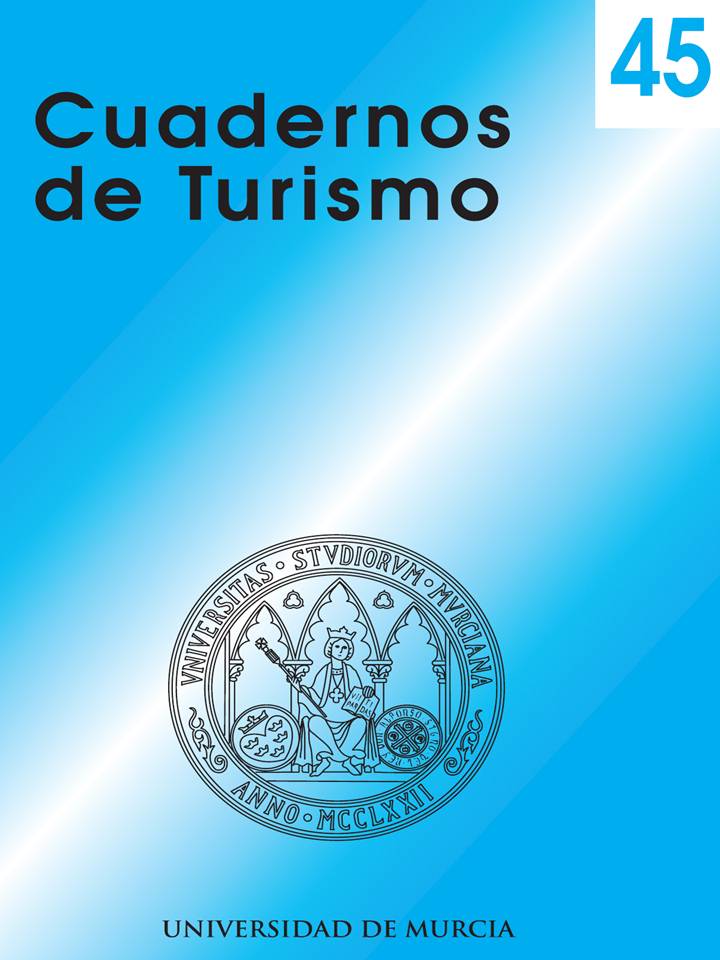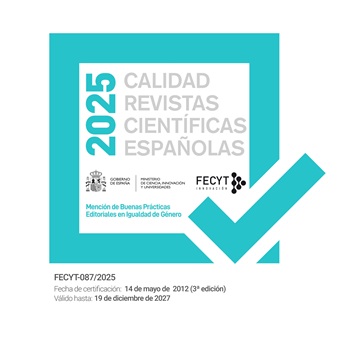Entrepreneurial intention in Cuba: An analysis of self-employed room lessors specialized in foreign tourism
Supporting Agencies
- Tourist lease; entrepreneurship; self-employed; international customers; Cuba
Abstract
This paper analyses the Cuban self-employed room lessor sector specialized in foreign tourism in the town of Playa, Havana City, as well as the effect on ratings issued by international customers. The data come from an entrepreneurial sample of 100 Cuban self-employed room lessors (SRL) and a non-probabilistic sampling of 184 international clients. The conclusions of the study show that these self-employed Cubans constitute a source of competition for State tourism facilities. Likewise, it should be mentioned that the entrepreneurial intention of these lessors comes from their self-perception as professionals and is not conditioned by socio-demographic or cultural elements.
Downloads
-
Abstract450
-
PDF578
-
PDF (Español (España))578
References
AUTIO, E., KEELEY, R.H., KLOFSTEN, M., PARKER, G.C. and HAY, M. (2001): «Entrepreneurial Intent among Students in Scandinavia and the USA», Enterprise and Innovation Management Studies, vol. 2 (2), pp. 145-160.
BANCO CENTRAL DE CUBA (1994): "Resolución 357", Gaceta Oficial Ordinaria, nº 20.
BANCO CENTRAL DE CUBA (2004): "Resolución 84", Gaceta Oficial Extraordinaria, nº 12.
BANCO CENTRAL DE CUBA (2010): "Resolución 85", Gaceta Oficial Ordinaria, nº 44.
BANCO CENTRAL DE CUBA (BCC, 2019): «Tasas de cambio». Disponible en http://www.bc.gob.cu/
BENUR, H. and BRAMWELL, F. (2015): «Tourism product development and product diversification in destinations», Tourism Management, vol. 50, pp. 213-224.
BIERWERTH, M. SCHWENS, C., ISIDOR, R. and KABST, R. (2015): «Corporate entrepreneurship and performance: a meta-analysis», Small Business Economics, vol. 45 (2), pp. 255-278.
BORRAS, F. (2017): «El crédito a las nuevas formas de gestión no estatal en Cuba», in Ricardo Torres Pérez and Dayma Echevarría León (Eds.) Un acercamiento a la actualización seis años después, Panama, Ruth Publishing House, pp. 165-174.
BUITELAAR, R. (2010): «The situation of SMEs in Latin America. The approach and the contribution of ECLAC», Direction of productive development and ECLAC business, Paramaribo, pp. 1-24.
CATLEY, S. and HAMILTON, R.T. (1998): «Small business development and gender of owner», Journal of Management Development, 1, pp. 75-82.
FAYOLLE, A., LIÑÁN, F. and MORIANO, J.A. (2014): «Beyond entrepreneurial intentions: Values and motivations in entrepreneurship», International Entrepreneurship and Management Journal, vol. 10 (4), pp. 679-689.
FRAGA, R. and MESA, N. (2004): «Los sujetos mercantiles en Cuba», en Colectivo de Autores, Nociones de Derecho Mercantil, La Habana, Félix Varela, pp. 13-44.
FUENTES, M.M. (2008): Descubrimiento y explotación de oportunidades: Relación con las redes sociales de los emprendedores andaluces. Granada, Universidad de Granada.
GRANMA (2018): «Firman Etecsa y compañía SES Networks acuerdo para servicios satelitales», Granma, La Habana, miércoles 21 de febrero.
IZQUIERDO FERRER, L. (2018): «MINTUR: 2019 será un año de retos para el turismo cubano», in Cubadebate. Disponible en
KINNEAR, T. and TAYLOR, J. (2000): Investigación de mercado. Un enfoque aplicado, Bogotá, McGraw Hill.
KRUEGER, N.F., REILLY, M.D. and CARSRUD, A.L. (2000): «Entrepreneurial intentions: A competing models approach», Journal of Business Venturing, vol. 15 (5-6), pp. 411-432.
KURATKO, D.F. (2005): «The emergence of entrepreneurship education: Development, trends, and challenges», Entrepreneurship, Theory & Practice, vol. 29 (5), pp. 577-598.
KURATKO, D.F. (2008): ‘Entrepreneurship’, Theory, Process, and Practice. Cengage Learning, Mason, 8th ed.
KURATKO, D.F., HORNSBY, J.S. and HAYTON, J. (2015): «Corporate entrepreneurship: The innovative challenge for a new global economic reality», Small Business Economics, vol. 45 (2), pp. 245-253.
LEYDEN, D.P., ALABERT, N.L. and DONALD, S.S. (2014): «A theoretical analysis of the role of social networks in entrepreneurship», Research Policy, vol. 43 (7), pp. 1.157-1.163.
LIÑÁN, F., URBANO, D. and GUERRERO, M. (2011): «Regional variations in entrepreneurial cognitions: Start-up intentions of university students in Spain», Entrepreneurship and Regional Development, vol. 23 (3-4), pp. 187-215.
MAZZAROL, T., VOLERY, T., DOSS, N. and THEIN, V. (1999): «Factors influencing small business start-ups: A comparison with previous research», International Journal of Entrepreneurial Behavior and Research, vol. 5, pp. 48-63.
MINISTRY OF INTERNAL TRADE (2016): "Resolution 61, on trade relations between wholesale producing and marketing entities and non-agricultural cooperatives". Extraordinary Official Gazette 12.
MINISTRY OF LABOR AND SOCIAL SECURITY (MTSS, 2018): "Resolution No. 11", Extraordinary Official Gazette 35.
MINISTRY OF LABOR AND SOCIAL SECURITY (2017): "Resolution No. 22", Extraordinary Official Gazette 31.
MINISTRY OF LABOR AND SOCIAL SECURITY (2014): "Resolution 33, Regulation on the lease of housing, rooms and spaces". Extraordinary Official Gazette 40.
MINISTRY OF LABOR AND SOCIAL SECURITY (2013): "Resolution 41, Regulation of self-employment". Extraordinary Official Gazette 26.
MORRIS, M.H., WEBB, J.W., FU, J. and SINGAL, S. (2013): «A Competency-based perspective on entrepreneurship education: Conceptual and empirical insights», Journal of Small Business Management, vol. 51 (3), pp. 352-369.
MORRISON, A. (2006). Morrison, A. (2006): «A contextualisation of entrepreneurship International», Journal of Entrepreneurial Behaviour and Research, vol. 12, pp. 192-209.
MORRISON, A., CARLSEN, J. and WEBER, P. (2008): «Lifestyle Oriented Small Tourism [Lost] Firms and Tourism Destination Development», en Richardson, S., Fredline, L., Patiar, A., Ternel, M. (Editors). CAUTHE 2008: Tourism and Hospitality Research, Training and Practice; "Where the 'Bloody Hell' Are We?", Griffith University, Gold Coast.
NILSSON, P.A., PETERSON, T. and WANHILL, S. (2005): «Public support for tourism SMEs in peripheral areas: The Arjeplog project, Northern Sweden», The Service Industries Journal, vol. 25 (4), pp. 579-599.
OBAMA, B. (2014): Transcripción del discurso del Presidente Barak Obama sobre las relaciones con Cuba, December 17th, Washington. Disponible en http://www.whitehouse.gov/the-press-office/2014/12/19/declaraciones-del-presidente-sobre-cambios-en-la-pol-tica-con-cuba
OFICINA NACIONAL DE ESTADÍSTICAS E INFORMACIÓN (ONEI, 2018): Statistical Yearbook of Cuba 2017. Tourism. Havana, ONEI.
PADILLA-MELÉNDEZ, A., FERNÁNDEZ-GÁMEZ, M.A. and MOLINA-GÓMEZ, J. (2014); «Feeling the risks: effects of the development of emotional competences with outdoor training on the entrepreneurial intent of university students», International Entrepeneurship Management Journal, vol. 10 (4), pp. 861-884.
PARTIDO COMUNISTA DE CUBA (PCC, 2016): Conceptualización del modelo económico y social cubano de desarrollo socialista. Plan Nacional de desarrollo económico y social hasta 2030: propuesta de visión de la nación, ejes y sectores estratégicos. VII Congreso del Partido Comunista de Cuba, La Habana.
RAUCH, A., WIKLUND, J., LUMPKIN, G. and FRESE, M. (2009): «Entrepreneurial orientation and business performance: An assessment of past research and suggestions for the future», Entrepreneurship Theory and Practice, vol. 33 (3), pp. 761-787.
RAUCH, A. and FRESE, M. (2007): «Let's put the person back into entrepreneurship research: A meta-analysis of the relationship between business owners' personality characteristics and business creation and success», European Journal of Work and Organizational Psychology , vol. 16 (4), pp. 353-385.
RUIZ, A.M., SANZ, E.I. and FUENTES, F.M. (2015): «Alerta emprendedora y conocimiento previo para la identificación de oportunidades emprendedoras: el papel moderador de las redes sociales», Investigaciones Europeas de Dirección y Economía de la Empresa, vol. 21 (1), pp. 47-54.
SAATY, T.L. (1980): The Analytical Hierarchy Process, Planning, Priority. RWS Publications, USA.
SAMPIERI, R. H., FERNÁNDEZ, C.C. and BAPTISTA, L.P. (2003): Metodología de la Investigación, Naucalpan de Juárez, McGraw-Hill Interamericana.
SÁNCHEZ, L. (2017): «Emprendimientos Culturales en Cuba», ponencia, Seminario Científico Anual, Centro de Estudios de la Economía Cubana, La Habana, 21-22 de marzo.
SHAW, G. and WILLIAMS, A. (2004): «From lifestyle consumption to lifestyle production: Changing patterns of tourism entrepreneurship», en R. Thomas (Ed.) Small Firms in Tourism: International Perspective. Oxford, Elsevier, pp. 99-113.
SIMMS, D.M. (1981): «Tourism, Entrepreneurs and Change in Southwest Ireland», Doctoral Dissertation, State University of New York, New York.
TARAPUEZ, C.E., OSORIO, C.H. and BOTERO, V.J.J. (2013): «Política de emprendimiento en Colombia, 2002-2010», Estudios Gerenciales, vol. 29 (128), pp. 274-283.
THAI, M. and TURKANA, E. (2014): «Macro-level determinants of formal entrepreneurship versus informal entrepreneurship», Journal of Business Venturing, vol. 29 (4), pp. 490-510.
Las obras que se publican en esta revista están sujetas a los siguientes términos:
1. El Servicio de Publicaciones de la Universidad de Murcia (la editorial) conserva los derechos patrimoniales (copyright) de las obras publicadas, y favorece y permite la reutilización de las mismas bajo la licencia de uso indicada en el punto 2.
2. Las obras se publican en la edición electrónica de la revista bajo una licencia Creative Commons Reconocimiento-NoComercial-SinObraDerivada 3.0 España (texto legal). Se pueden copiar, usar, difundir, transmitir y exponer públicamente, siempre que: i) se cite la autoría y la fuente original de su publicación (revista, editorial y URL de la obra); ii) no se usen para fines comerciales; iii) se mencione la existencia y especificaciones de esta licencia de uso.
3. Condiciones de auto-archivo. Se permite y se anima a los autores a difundir electrónicamente las versiones pre-print (versión antes de ser evaluada) y/o post-print (versión evaluada y aceptada para su publicación) de sus obras antes de su publicación, ya que favorece su circulación y difusión más temprana y con ello un posible aumento en su citación y alcance entre la comunidad académica. Color RoMEO: verde.





_.jpg)








